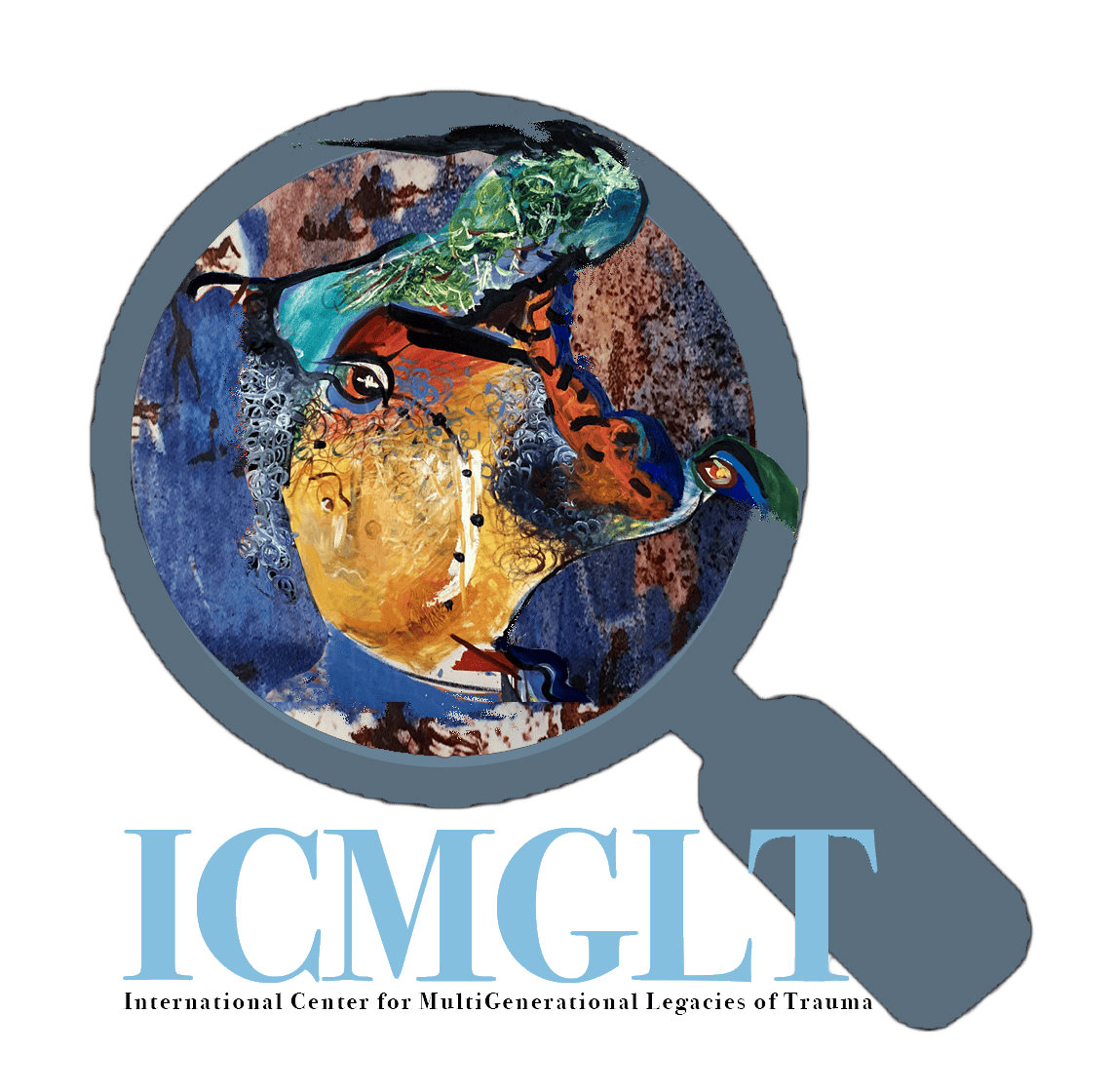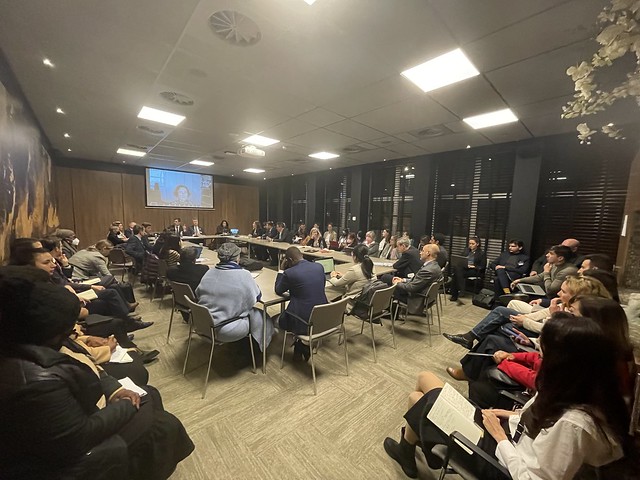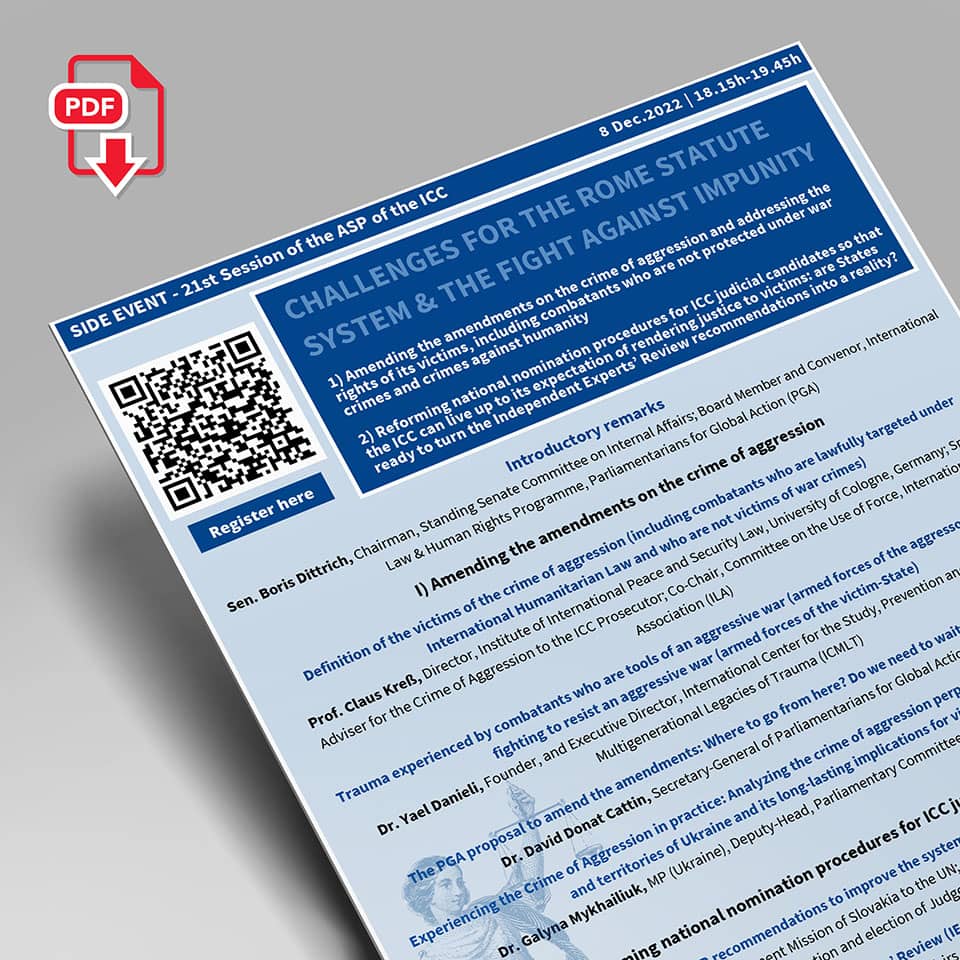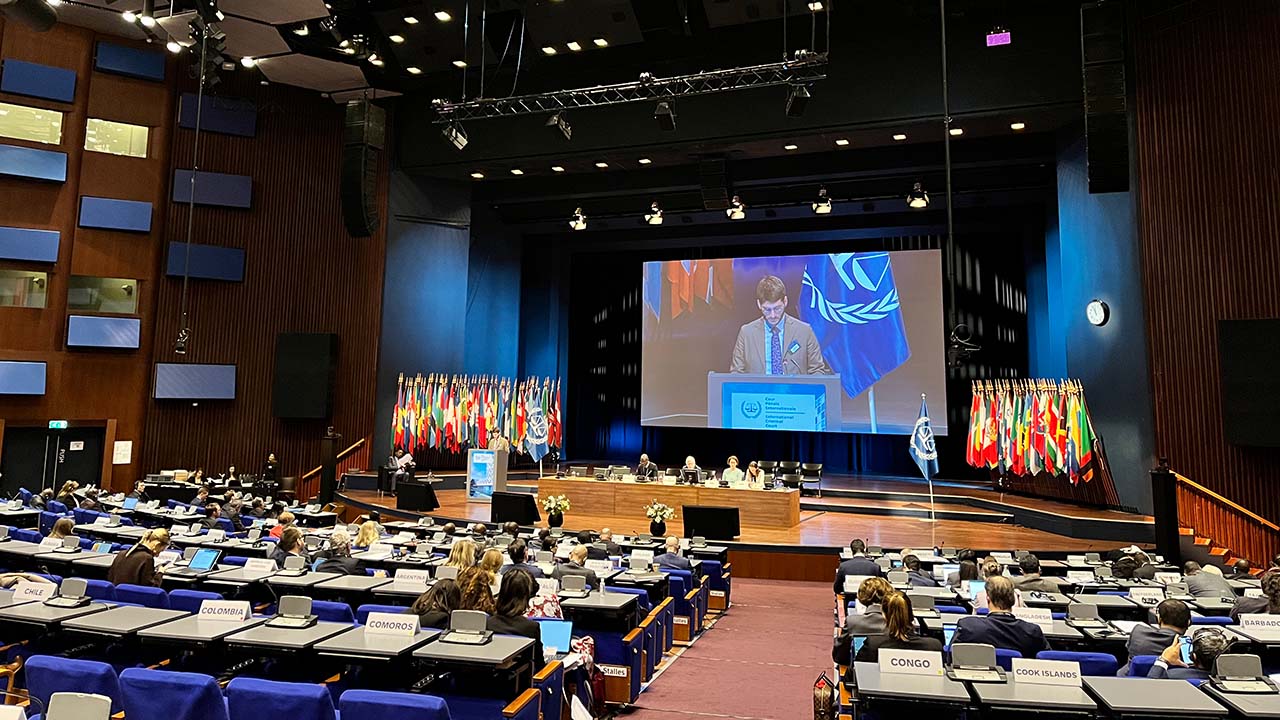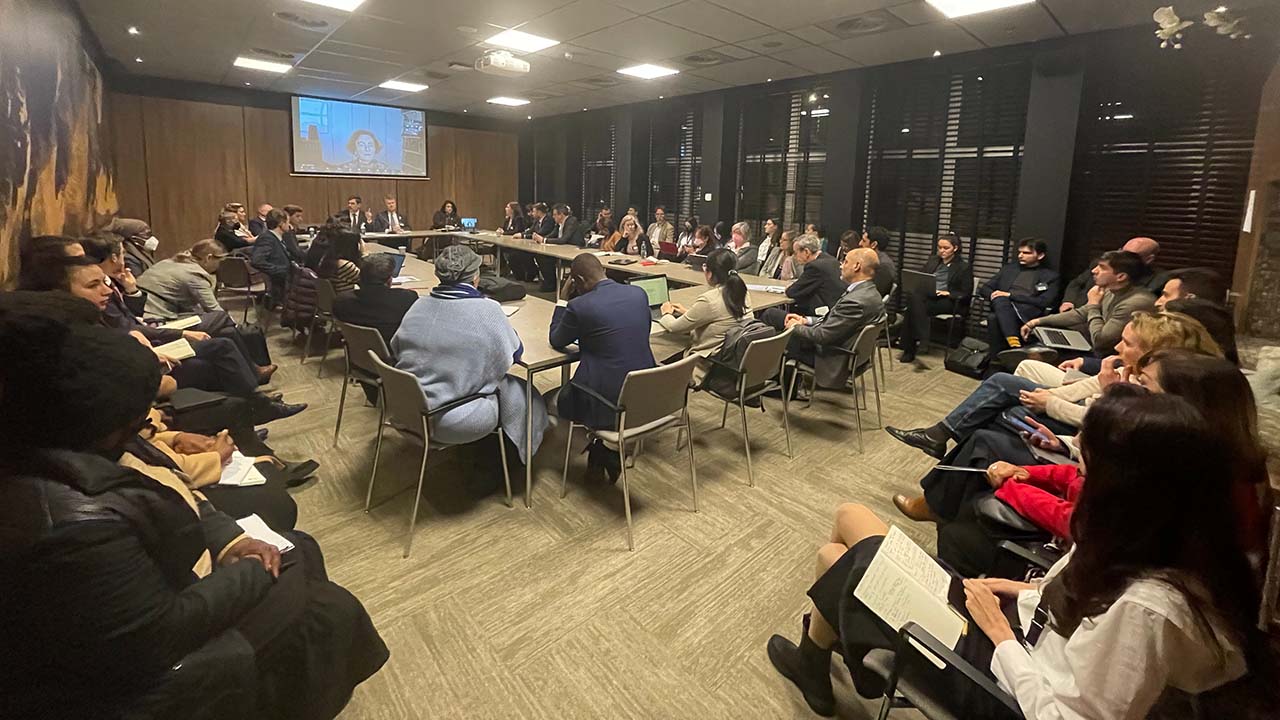
Challenges for the Rome Statute system and the fight against impunity
- Amending the amendments on the crime of aggression and addressing the rights of its victims, including combatants who are not protected under war crimes and crimes against humanity
- Reforming national nomination procedures for ICC judicial candidates so that the ICC can live up to its expectation of rendering justice to victims: are States ready to turn the Independent Experts’ Review recommendations into a reality?
Thursday 8 December 2022 – 18:15 to 19:45
ANTARCTICA Room, World Forum, The Hague (hybrid format via PGA Zoom platform)
Agenda
Introductory remarks:
- Sen. Boris Dittrich, Chairman, Standing Senate Committee on Internal Affairs; Board Member and Convenor, International Law & Human Rights Program, PGA
I) Amending the amendments on the crime of aggression
Definition of the victims of the crime of aggression (including combatants who are lawfully targeted under International Humanitarian Law and who are not victims of war crimes)
- Prof. Claus Kreß, Director, Institute of International Peace and Security Law, University of Cologne, Germany; Special Adviser for the Crime of Aggression to the ICC Prosecutor; Co-Chair, Committee on the Use of Force, International Law Association (ILA)
Trauma experienced by combatants who are tools of an aggressive war (armed forces of the aggressor) or who are fighting to resist against an aggressive war (armed forces of the victim-State)
- Dr. Yael Danieli, Founder, and Executive Director, International Center for the Study, Prevention and Treatment of Multigenerational Legacies of Trauma (ICMGLT); co-founder, Victims’ Rights Working Group (VRWG)
The PGA proposal to amend the amendments: Where to go from here? Do we need to wait for the 2025 ASP?
- Dr. David Donat Cattin, Secretary General of Parliamentarians for Global Action; co-founder, VRWG
Experiencing the Crime of Aggression in practice: Analyzing the crime of aggression perpetrated against the people and territories of Ukraine and its long-lasting implications for victims
- Dr. Galyna Mykhailiuk, MP (Ukraine)
II) Reforming national nomination procedures for ICC judicial candidates
State of play of the IER recommendations to improve the system of national nominations
- Mr. Matúš Košuth, Legal Adviser and Permanent Mission of Slovakia to the UN;ASP Facilitator on Review of the procedure for the nomination and election of Judges (TBC)
Are States ready to turn the Independent Experts’ Review (IER) recommendations into a reality?
- Ms. Petra Benešová, Legal Officer, Ministry of Foreign Affairs, Czech Republic(Chair, EU COJUR-ICC)
Can the Advisory Committee on Nominations of Judges draft guidelines on public, transparent, and merit-based procedures for national nominations before the end of 2022?
- Open debate
Commentaries and interactive discussion
- Dr. Deborah Ruiz Verduzco, Director, Coalition for the ICC (CICC)
Open debate
Working language: English | Reception-style catering provided
RATIONALE FOR THIS SIDE EVENT TO THE 23RD ASSEMBLY OF STATES PARTIES
Expectation: The International Criminal Court (ICC) has been created to be a fair, independent international judicial body that applies the highest standards of justice, based on the principle of equality of all before the law.
I) However, in the face of aggressive wars such as the one that is devasting Ukraine, the ICC may not exercise its jurisdiction on the crime of aggression unless there would be a UN Security referral (which is subjected to the veto-power of 5 permanent members) or there would be ratification of the Kampala amendments by the State that carried out the aggressive war (e.g., the Russian Federation). This is inconsistent with the jurisdiction of the ICC on genocide, crimes against humanity, and war crimes, which works automatically based on either ratification or acceptance by territorial State or by the State of nationality of the alleged perpetrator.
This situation can be remedied by amending the Rome Statute’s provisions of Article 15bis (paragraphs 4 and 5) that impede an alignment of the ICC jurisdiction on the crime of aggression to the one that exists for the other core crimes under International Law. In doing, it would be helpful for States, NGOs, and other stakeholders to recognize that the crime of aggression is victimizing an entire category of individuals who are not protected under the other core crimes, namely, combatants.
II) To uphold the rights of victims, including of the crime of aggression, to have access to remedies and justice, it is of utmost importance that the ICC judges are of the caliber to render authoritative and high-quality jurisprudence and guarantee fair trials. Therefore, the quality of the judges has fundamental importance to the performance, efficiency, and effectiveness of the ICC, which is at the heart of the long-term success of the ICC and the Rome Statute system as a whole. In its report, the Independent Experts Review (IER) panel concluded that “the ability and experience of some of the Judges who have been elected have not marked them out as Judges or jurists of the highest caliber sought by the Court”.
Despite the legal framework enshrined in the Rome Statute on the qualifications of the judicial candidates, political considerations arising during the domestic national nominations phase, and spilling into the election phase, have hindered the transparency of the process. To remedy this situation, States should equip themselves with domestic procedures guaranteeing that only the best candidates are nominated by States for the ICC judicial elections through public, transparent, and merit-based processes.
ICC judicial elections will take place next year (2023), with the nomination period already starting on 2 January 2023. As such, this side event will offer an important opportunity to facilitate the discussion among States and other stakeholders on identifying a way forward to ensure that the ACN (or other appropriate body) would be able to produce guidelines or criteria on merit-based and transparent national nomination procedures before the end of 2022.
The PGA Delegation to the 2022 ASP includes two multi-party parliamentary delegations from Namibia and Ukraine.

